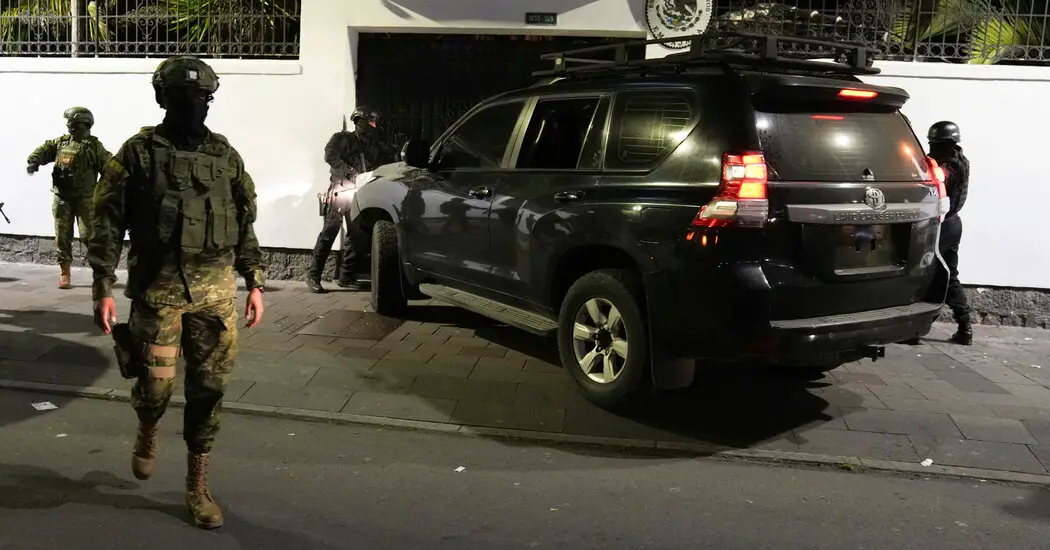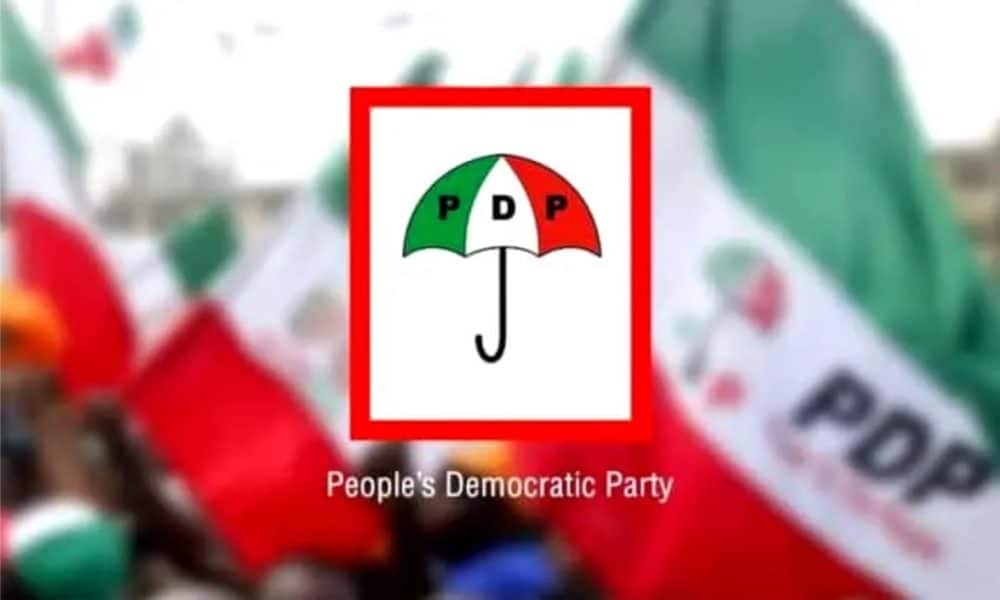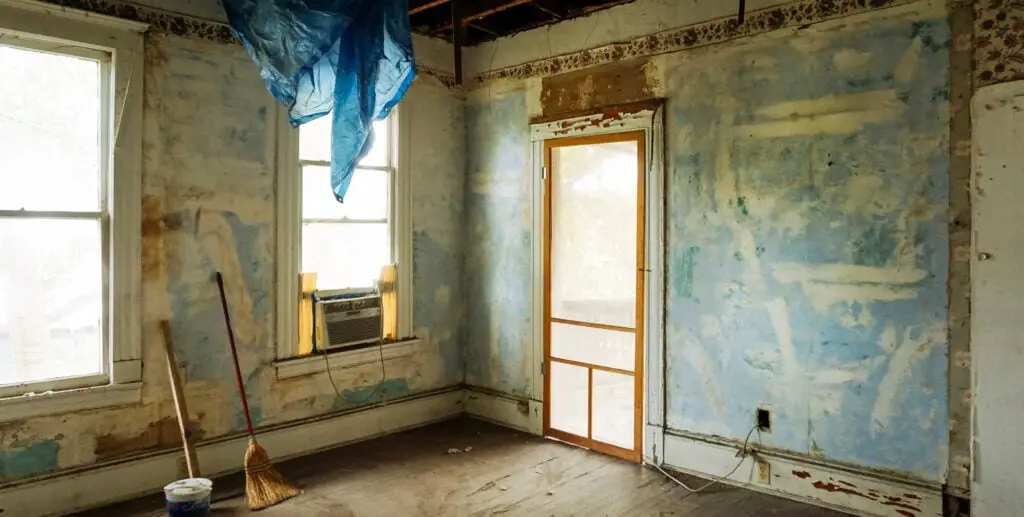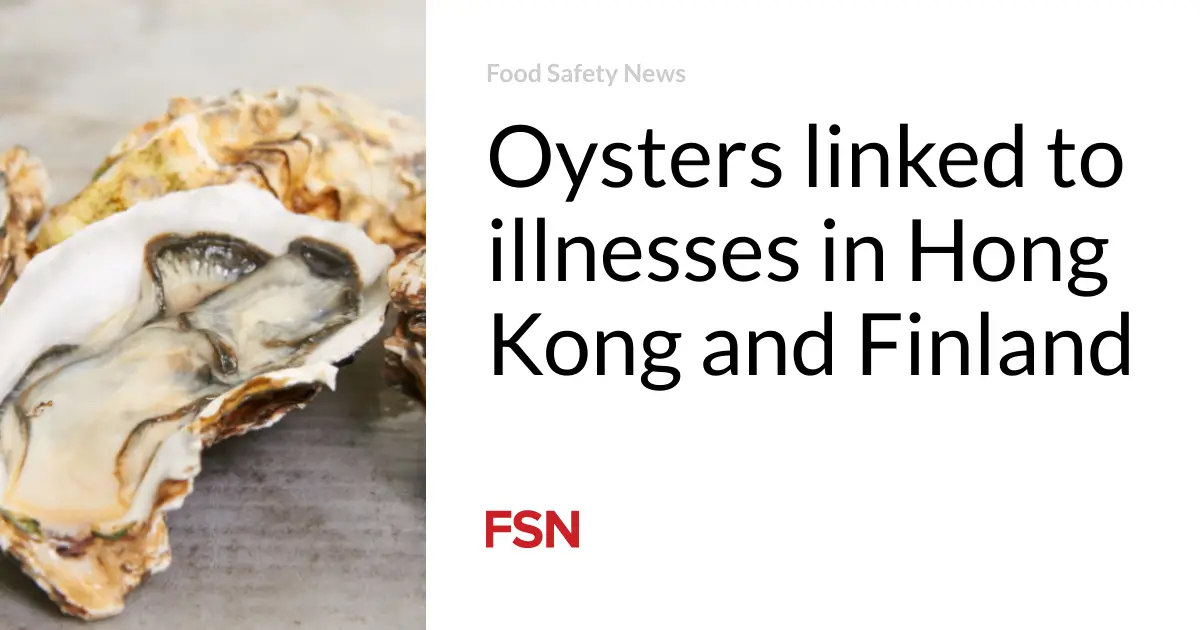
Ecuadorean police on Friday night arrested a politician who had taken refuge in the Mexican Embassy in Quito, after what Mexico described as a forced entry that violated the country’s sovereignty. The incident prompted Mexico to suspend diplomatic relations with Ecuador and inflamed already high tensions between the two countries.
The politician, Jorge Glas, a former vice president of Ecuador, had been sentenced to prison for corruption, Ecuador’s presidential office said in a statement, which added that there had been a warrant out for his arrest. Mr. Glas, who had been living at the embassy in Ecuador’s capital since December, was granted political asylum by Mexico earlier Friday.
The office of Ecuador’s president, Daniel Noboa, added that the arrest had gone forward because Mexico had abused the immunities and privileges granted to the diplomatic mission, and that Mr. Glas’s asylum was given “contrary to the conventional legal framework.”
Although it was difficult to immediately confirm exactly how the arrest happened, footage shared by Ecuadorean news media showed what appeared to be the aftermath, with police officers holding back onlookers as two black cars, sirens blaring, drove out of the embassy. A man identified by local reporters as Roberto Canseco, the Mexican official in charge at the embassy, could be seen shouting, “No!” before officers pushed him to the ground.
Mr. Canseco told reporters that he was about to leave the embassy when, suddenly, he was faced with “police, thieves, who entered the embassy overnight.” He said he physically tried to stop them from entering. “They hit me, I was hit on the ground,” he said. “Like criminals, they broke into the Mexican Embassy in Ecuador.”
The arrest follows months of dispute between the two nations, in part over Mr. Glas, whom Ecuadorean authorities considered a fugitive. Both sides have been trading barbs, with tensions escalating this past week after the Mexican president appeared to question the legitimacy of Ecuador’s most recent presidential election. The Ecuadorean government then effectively ordered Mexico’s ambassador to leave, declaring her a “persona non grata.” Mexico condemned that declaration on Friday, and also granted Mr. Glas asylum.
Mexico’s secretary of foreign affairs, Alicia Bárcena Ibarra, announced the breaking of diplomatic relations with Ecuador in a statement, saying that Mexican diplomatic personnel had suffered injuries in the episode at the embassy. She ordered Mexican diplomats to leave Ecuador and said Mexico would file an appeal to the International Court of Justice.
Shortly after the arrest, Mexico’s president, Andrés Manuel López Obrador, issued a statement calling the episode a “flagrant violation of international law and the sovereignty of Mexico” and saying that the Ecuadorean police had used force to enter the embassy.
Attacks on embassies carry particular weight because they are often viewed as a sanctuary for the citizens of their nations. They normally cannot be entered by the host country’s police without the permission of diplomatic staff. The Ecuadorean Foreign Ministry said in March that it had requested Mexico’s permission to enter the embassy to arrest Mr. Glas.
Mr. Glas, who served as vice president under President Rafael Correa from 2013 to 2017, had once been favored to succeed him. But in 2017, he was found guilty and sentenced to six years in prison for receiving bribes from Odebrecht, an international construction giant. The company has admitted to paying more than $800 million in bribes in more than a dozen countries, implicating governments around Latin America who have faced accusations of corruption.
In 2020, Mr. Glas was given an additional eight-year sentence, along with Mr. Correa, in a separate bribery case. In November 2022, he was released early from prison.
A third charge, of embezzlement, was what led the authorities in Ecuador to obtain the arrest warrant that prompted Friday’s confrontation at the Mexican Embassy.
The rift between Ecuador and Mexico widened a few days ago when Mr. López Obrador made public comments about the 2023 assassination of Fernando Villavicencio, an Ecuadorean presidential candidate, and criticized Ecuador’s current president, Mr. Noboa.
Ecuador’s Foreign Ministry on Thursday called Mr. López Obrador’s remarks “unfortunate” and announced the measures against the Mexican ambassador, Raquel Serur Smeke.
In response, Mexico instructed its ambassador to return home and appointed Mr. Canseco, head of the Mexican consular section in Quito, to lead the embassy. It also condemned the increased presence of Ecuadorean police forces outside the embassy.
Mr. Noboa, a center-right political outsider, took office in November after winning a high-stakes election in which corruption and drug-related violence had been foremost issues. Mr. Noboa pledged to crack down on drug-trafficking gangs and return the nation to its prosperous past.
Ecuador in recent years has been wracked by rising violence driven by powerful drug-trafficking gangs. Reports of car bombings and police assassinations have become common, and the assassination of Mr. Villavicencio, a presidential candidate who had been vocal about the problems of corruption and organized crime, sent more upheaval through the nation.
Mr. Noboa declared a state of internal conflict this year, granting him special power to take on organized crime, and he has deployed troops against the gangs. But some human rights activists have also raised alarm about the effect on civil liberties.
Mark A. Walsh contributed reporting.







